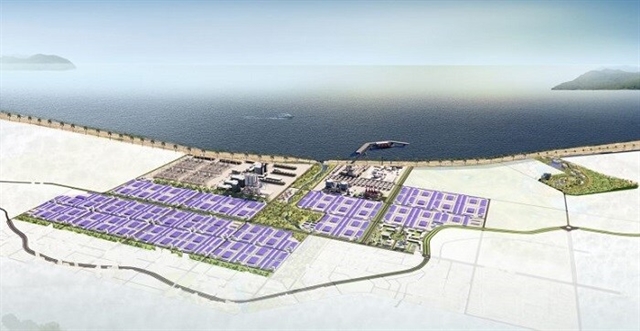 Society
Society


|
| A proposed port is expected to be able to serve ships up to 150,000 DWT in Bình Thuận Province. — Photo www.baogiaothong.vn |
HCM CITY — A new general port with capacity to receive ships of up to 150,000 DWT will be built in the south-central coastal province of Bình Thuận.
The Việt Nam Maritime Administration has written a statement asking the Ministry of Transport for approval of Sơn Mỹ Industrial Park Infrastructure Investment and Construction Company Limited’s proposal to implement investment in building the general port with the aim of serving Sơn Mỹ 1 Industrial Park.
The proposed port will be located in Sơn Mỹ Commune in the province’s Hàm Tân District, covering an area of more than 160 hectares.
It will have a port harbor with three general wharfs and three specialised wharfs. General wharfs can handle ships of 30,000-50,000 tonnes and specialised wharfs can receive ships of 50,000-150,000 tonnes.
Construction of the port is divided into two phases and is expected to be completed by 2026.
Building a breakwater and an embankment, renovating the yards and warehouses, dredging the channels and canals, and setting up navigation signals will also be done.
According to the master plan of the development of Việt Nam’s seaport system in the period of 2021-30, with a vision to 2050, Bình Thuận will develop port areas in Vĩnh Tân, Sơn Mỹ, Kê Gà, and Phan Thiết, and offshore terminals.
The general port in Sơn Mỹ is expected to directly serve Sơn Mỹ Industrial Park, LNG warehouse and Sơn Mỹ electricity centre, including general wharfs and passenger berths.
It is designed to serve ships transporting gas, oil and other liquids, with a total capacity of 4.5-6 million tonnes a year.
The Việt Nam Maritime Administration has also proposed that the Ministry of Transport direct local authorities to coordinate with the investor to ensure the implementation progress of the port is in line with local good transportation demand.
This requires ensuring the port does not negatively impact the ground, water surface and coastal areas.
The investor also needs to work with local authorities for instructions on construction-related administrative procedures and other related regulations to expedite the work, it said. — VNS




